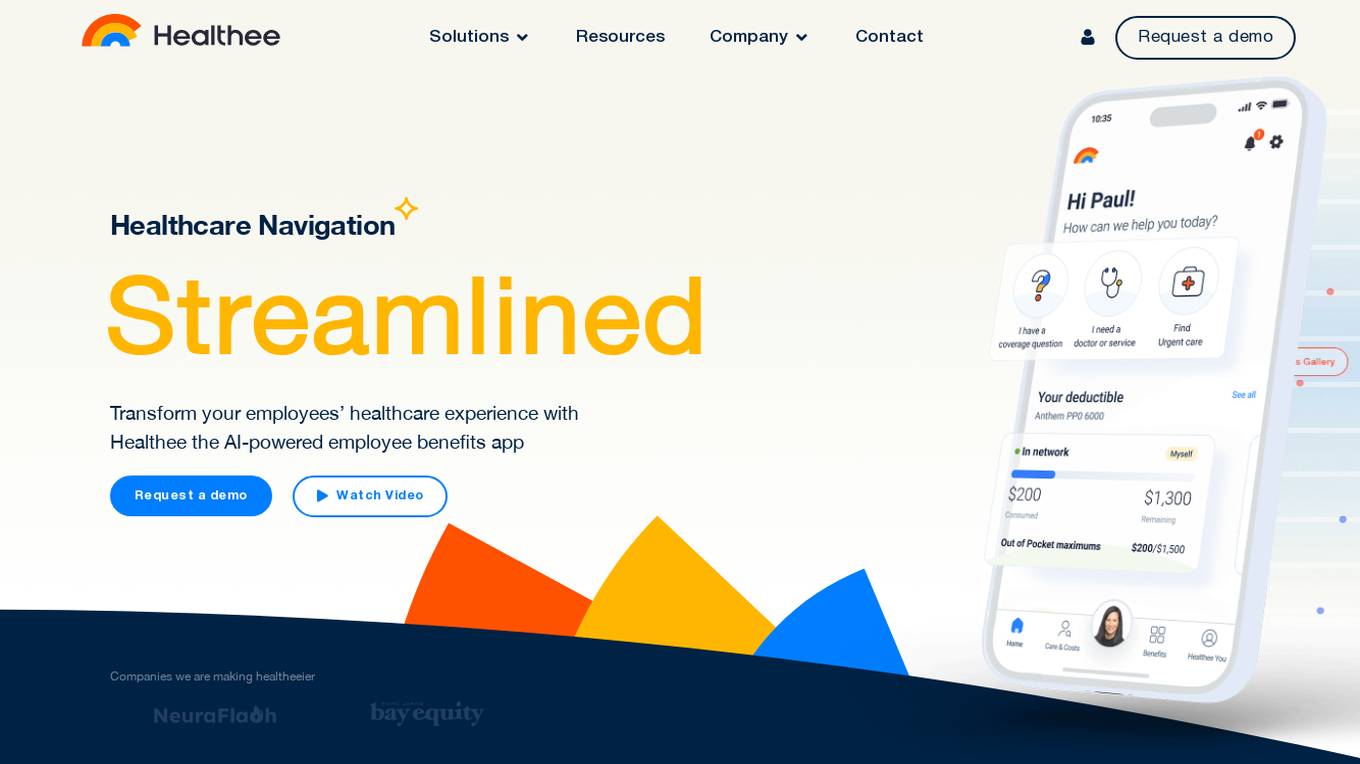Best AI tools for< Tpa >
Infographic
1 - AI tool Sites

Healthee
Healthee is an AI-powered employee benefits app that simplifies healthcare navigation for employees and stakeholders. It provides personalized answers to healthcare queries, streamlines open enrollment processes, and offers real-time insights and data-driven preventive care recommendations. With Healthee, employees can access vital health plan information anytime through a user-friendly mobile app.
site
: 5.3k
0 - Open Source Tools
No tools available
0 - OpenAI Gpts
No tools available